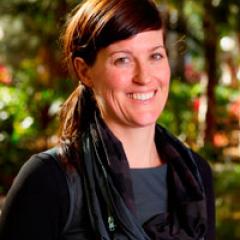Postdoctoral Research Fellow Dr Zunyi Xie from CBCS’s Complex Environmental Decisions Lab led a paper recently published in Nature Sustainability titled “Conservation opportunities on uncontested lands” that was also selected as the cover image for its issue.
Zunyi is a remote sensing researcher of terrestrial ecohydrological systems. His current research develops a novel approach combining remote sensing with spatial statistics, socioeconomic analysis and decision analysis to identify global “uncontested lands” and prioritise their use for Sustainable Development Goals (SDGs) of renewable energy, poverty, food and conservation.
Flipping the land-use demand challenge
In this Nature Sustainability paper, Zunyi and his co-authors looked at how conservation and agriculture often clash over contested spaces, yet there are, they propose, many “uncontested lands”, whose low agricultural productivity and degradation make them potentially easier acquisitions that can be restored for long-term conservation benefits. The novel concept of “uncontested lands” flips the land-use demand challenge. The usual focus on areas contested for agriculture or other economic endeavours moves to places with low opportunity for other uses that may easily be acquired and may provide a global opportunity to support life on lands that arouse minimal social or political opposition.
Uncontested lands cover potentially millions of hectares globally. Identifying their locations will support key SDGs policy from government, industry, Indigenous communities and non-government organisations that balance conservation with other land-use requirements. The paper also defines an approach for evaluating costs and benefits on uncontested land parcels. Zunyi and co-authors also published two remote sensing papers in 2019. All three papers are listed below.
Embracing complexity
The Complex Environmental Decisions Lab, within the School of Earth and Environmental Science, is led by CBCS’s Associate Professor Eve McDonald-Madden.
Using innovative methods drawn from disparate fields this group embraces the complexity of environmental systems with the aim to better inform wise investment. The lab’s research in complex environmental systems spans conservation, food security and renewable energy, with the ultimate aim of delivering management and policy that considers a sustainable future for people, places and our natural world. Recent work has built a tool for prioritising captive breeding of threatened species, management of threatened ecosystems under severe uncertainty, remotely finding unwanted lands to enhance global environmental outcomes (featured here), and optimisation to work out where to produce meat around the world for the least environmental and economic impacts.
Xie, Z., Game, E.T., Hobbs, R.J., Pannell, D.J., Phinn, S.R., & McDonald-Madden, E. 2020. Conservation opportunities on uncontested lands. Nature Sustainability, 3, 1–7.
Xie, Z., Phinn, S.R., Game, E.T., Pannell, D.J., Hobbs, R.J., Briggs, P.R., & McDonald-Madden, E. 2019. Using Landsat observations (1988–2017) and Google Earth Engine to detect vegetation cover changes in rangelands: A first step towards identifying degraded lands for conservation. Remote Sensing of Environment, 232, 111317.
Xie, Z., Huete, A., Cleverly, J., Phinn, S., McDonald-Madden E., Cao, Y., Qin, F. 2019. Multi-climate mode interactions drive hydrological and vegetation responses to hydroclimatic extremes in Australia. Remote Sensing of Environment, 231, 111270.
Photo: Inset from the cover of Nature Sustainability


